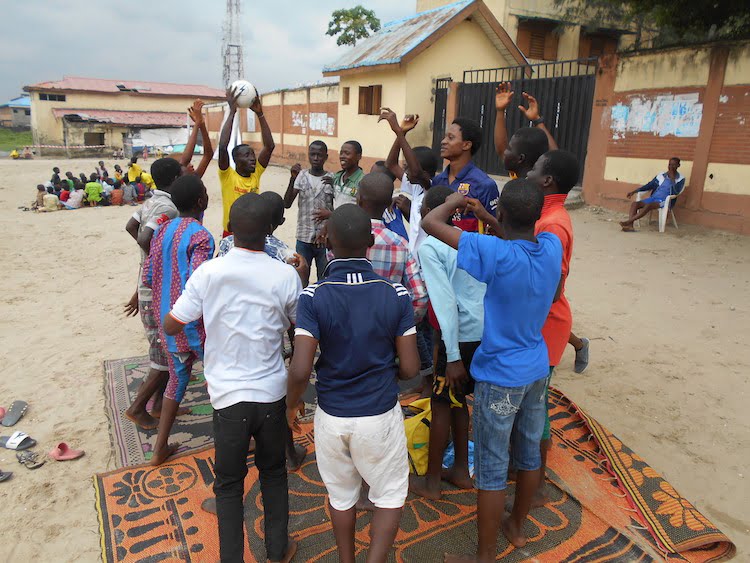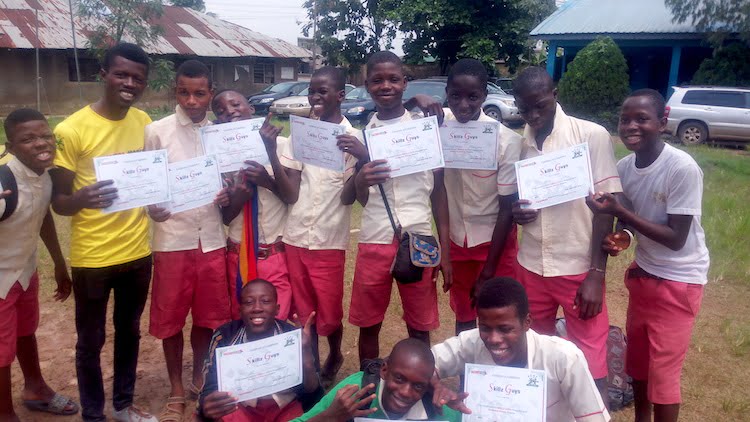By: Chukwidike Akanegbu, YEDI and Devyn Lee, Grassroot Soccer
A new study out of Nigeria from Grassroot Soccer (GRS) and Youth Education Development Initiative (YEDI), shows that soccer is a promising tool that can shift the attitudes and behaviors of adolescent boys and young men around health and gender equality. Engaging males on gender and power is a critical step towards preventing and responding to sexual and gender-based violence that compromises health-seeking behavior and drives poor health outcomes in adolescent girls and boys.

The evaluation was conducted in 2018, with research advisory support from the Nigerian Institute of Medical Research and support from Laureus Sport for Good. The study surveyed 250 participants in “SKILLZ Guyz” a sport-based program that uses soccer as a unique entry point to address harmful gender norms, perpetration of violence, substance abuse and uptake of health services. The program aims to build the assets of adolescent boys: HIV, sexual, and reproductive health knowledge as well as anger management and conflict resolution skills; access to health services; and adherence to healthy behaviors. SKILLZ Guyz uses soccer-based activities as metaphors to teach health knowledge and explore issues of gender and power, and is facilitated by young male mentors or “Coaches.”
The results of pre and post program surveys, along with qualitative interviews, have now been analyzed, and key findings include:
- The gender equitable attitudes of participants improved by 16.6% during the intervention, emphasizing the importance of engaging boys and young men in critical conversations about gender norms
- Statistically significant changes were observed in participant HIV knowledge scores, which improved by 17.5%, and pregnancy and contraceptive knowledge, which improved by 18.2% over the course of the intervention
- Participant self-efficacy increased by 22.6% and self-esteem increased by about 10% over the course of the intervention
We played a game called ‘Soccer Equality’ and that further opened my eyes to gender equality. Now, I’m a very good boy at home; if you see my mother and sister, ask them, I’m a changed person right now.”
Oshinowo Gabriel, 15, Lagos, Nigeria, SKILLZ Guyz Participant
In addition to these statistical changes, the following highlights emerged from the focus group discussions with SKILLZ Coaches and interviews with YEDI staff:
- The program covers important information that ABYM do not receive in school or at home
- The role of soccer was noted as critically important in creating a safe space and comfortable environment for discussion and learning – it made participants more forthcoming in sharing their experiences
- Coaches reported positive behavior change in participants, as noted by participants themselves, parents, and teachers
- Coaches noted positive effects on their own attitudes and behavior as a result of their training and facilitation of SKILLZ Guyz, including new awareness of consent before engaging in sex, and motivation to be a positive role model for participants

Findings from this evaluation of SKILLZ Guyz demonstrate that using soccer as the hook to create a safe environment for conversations around anger management and masculinity appears to be an effective entry into changing adolescent boys’ and young men’s knowledge, attitudes, and behaviors, particularly related to gender equality and violence against female partners. GRS is currently working with its partners to respond to these findings and integrate recommendations into program delivery, curriculum and training.